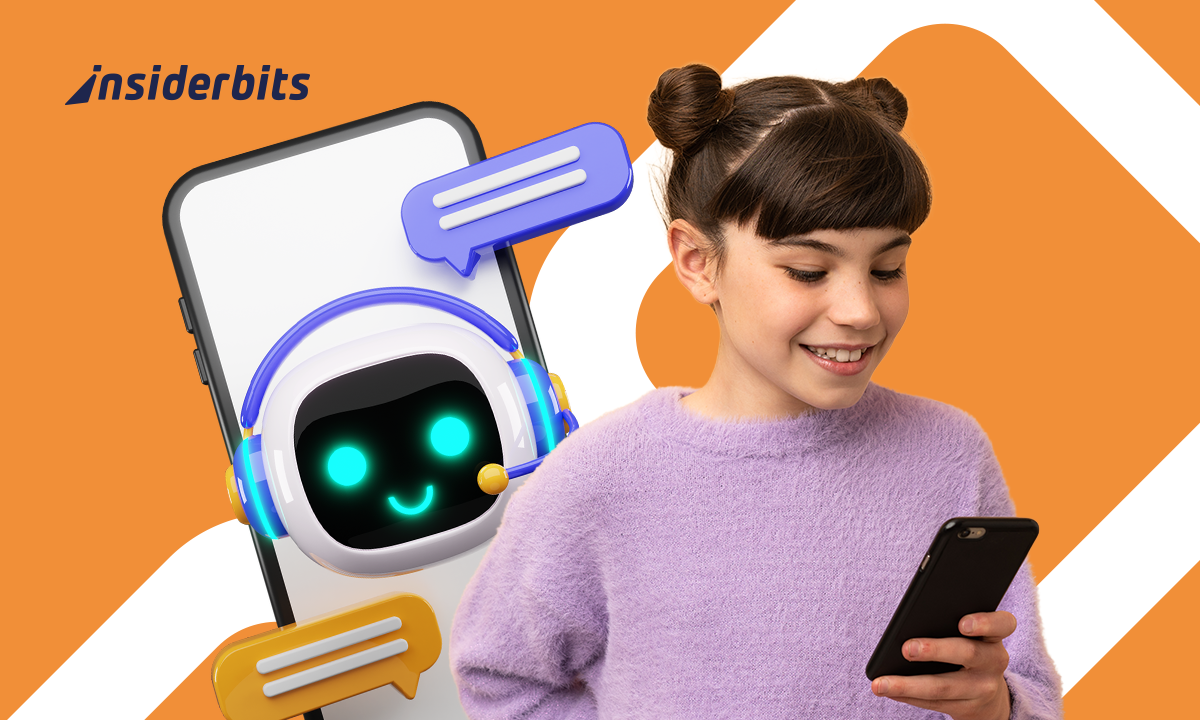The rise of AI tutors for kids is changing how families approach learning, offering personalized guidance without the financial strain of traditional classes. With intuitive interfaces and child-friendly designs, these AI tools adapt to each student’s pace, delivering support across subjects like reading, writing, math, and science with ease.
Parents seeking flexible, at-home educational options will find that free AI tutors provide a rare mix of accessibility and engagement. Without monthly subscriptions or hidden fees, they enable families to support academic development while reinforcing consistency and curiosity, key factors in long-term learning success.
4/5
Free AI Tutors for Kids: Where to Start Learning
Exploring the world of AI tutors for kids begins with understanding which tools are designed specifically for young learners and how to access them safely.
First of all, Khan Academy Kids stands out as a welcoming entry point, offering an intuitive app filled with story-based lessons and playful characters that guide children through core skills.
With no cost or login requirement, it encourages exploration from the very first tap.
Secondly, Socratic by Google provides a helpful bridge for slightly older kids who benefit from more targeted homework support.
While not gamified, its clean design and step-by-step explanations help learners solve problems while understanding the reasoning behind each answer.
Lastly, Sizzle AI introduces a chat-style tutor that works well for children comfortable with typing or reading short questions.
It feels like messaging a smart friend who replies with examples, hints, or explanations based on what the child needs at that moment.
Each platform has its own strengths, which means parents can try more than one to see what fits best.
It suits everyone whose goal is school reinforcement or independent discovery, these free AI tutors for kids offer a starting line that is just a download away.
Best Subjects and Features Offered by These Apps
Each AI tutors for kids platform delivers distinct educational value depending on how it presents subjects and interacts with the learner.
Khan Academy Kids introduces foundational topics like reading, early math, problem-solving, and emotional learning, all within animated lessons that feel like interactive stories.
In this app, children engage with songs, games, and simple drawing prompts that reinforce concepts gently and consistently.
Meanwhile, Socratic by Google supports subjects such as math, science, literature, and history, using visual explanations and diagram-based responses to make learning more concrete.
Sizzle AI brings flexibility with personalized Q&A sessions that adapt to a wide range of topics, including algebra, grammar, and even creative writing.
The tool refines its replies based on how the child phrases questions, encouraging conversational learning that’s both responsive and intuitive.
What makes these apps stand out is their capacity to meet the learner at their level. The experience feels more like guidance than instruction; it’s an approach that supports curiosity and independence at every stage.
How to Track Progress and Keep Kids Engaged
AI tutors for kids apps incorporate multiple engagement layers that make tracking progress feel like part of the learning experience rather than a task for later.
Parents using Khan Academy Kids can view detailed dashboards showing which skills their child has practiced, how often, and whether mastery has improved over time.
The reports are color-coded and timeline-based, making patterns easy to understand even for busy caregivers.
On the other hand, Socratic keeps progress informal, relying on recent queries and suggested follow-up questions to hint at what the learner is retaining.
While it doesn’t log every step, it encourages reflection through recap prompts that invite the child to revisit topics they struggled with.
Sizzle AI enhances engagement through motivational nudges, streak counters, and adaptive follow-up.
When a child shows consistency or improvement, the app celebrates with badges or milestones that feel earned, fostering intrinsic motivation and commitment.
Ultimately, keeping kids engaged also means minimizing frustration, and these tutors for kids respond to mistakes or repeated errors by rephrasing challenges or adjusting difficulty naturally.
Using AI to Support Homeschool or After-School Time
AI tutors for kids serve as a flexible solution for supplementing education in both homeschool routines and after-school enrichment, adapting quickly to the rhythm and needs of each household.
During homeschool hours, the apps we listed offer structured lesson paths organized by age and subject, allowing parents to treat the app as a curriculum assistant.
With a single tap, children are guided through storytelling, math drills, and vocabulary activities without requiring constant supervision.
Socratic, for example, excels in after-school settings where homework help is needed fast. Kids snap a photo of a question, and the app breaks it down into understandable steps, often linking to further reading.
Because these platforms operate asynchronously and adapt in real time, they create a consistent academic environment without the rigidity of classroom schedules.
That flexibility gives families the freedom to reinforce learning at a pace and place that fits their routine best.
What Parents Should Know About AI and Child Learning
AI tutors may feel invisible in their interface, but parents play a crucial role in making the most of their benefits and spotting their limitations early on.
While AI tutors for kids can deliver personalized guidance, they don’t replace human empathy or real-time emotional understanding.
Consequently, it’s important for parents to check in regularly, reviewing what was learned and identifying areas that might still need attention offline.
Privacy is another key concern. Apps designed for children often include strict policies, but it’s wise to verify what data is stored, how it’s used, and whether voice input or behavioral patterns are tracked in the background.
Parents should also help set expectations. Kids may initially treat AI responses as all-knowing, so reinforcing that mistakes can happen, just like with humans, helps build critical thinking rather than blind trust.
Used with care, AI tutors for kids can become allies in the educational journey.
However, success comes not just from the algorithms, but from the thoughtful guidance provided by the family behind the screen.
4/5
Free AI Tutors for Kids: Learn at Home Without Paying – Conclusion
AI-powered tutors for kids offer a new path for accessible education, combining interactivity and intelligence in a format children enjoy.
They work across different settings, bringing structure to homeschool plans or offering quick help after classes end.
By exploring the apps above, families can unlock new learning habits without stretching their budget.
With a watchful approach from parents and an openness to innovation, AI tutoring can transform into a powerful resource for daily learning at home.
En rapport : Fun with Science: Best Educational Apps for Kids in 2025
Enjoyed this article? Save the Insiderbits blog to your favorites for the latest tools, creative tech tips, and photo editing breakthroughs.





